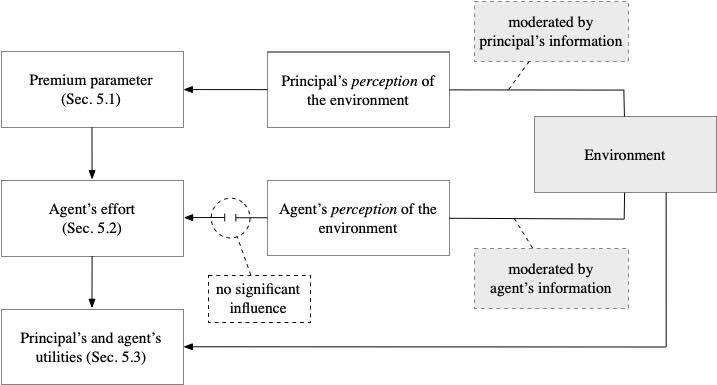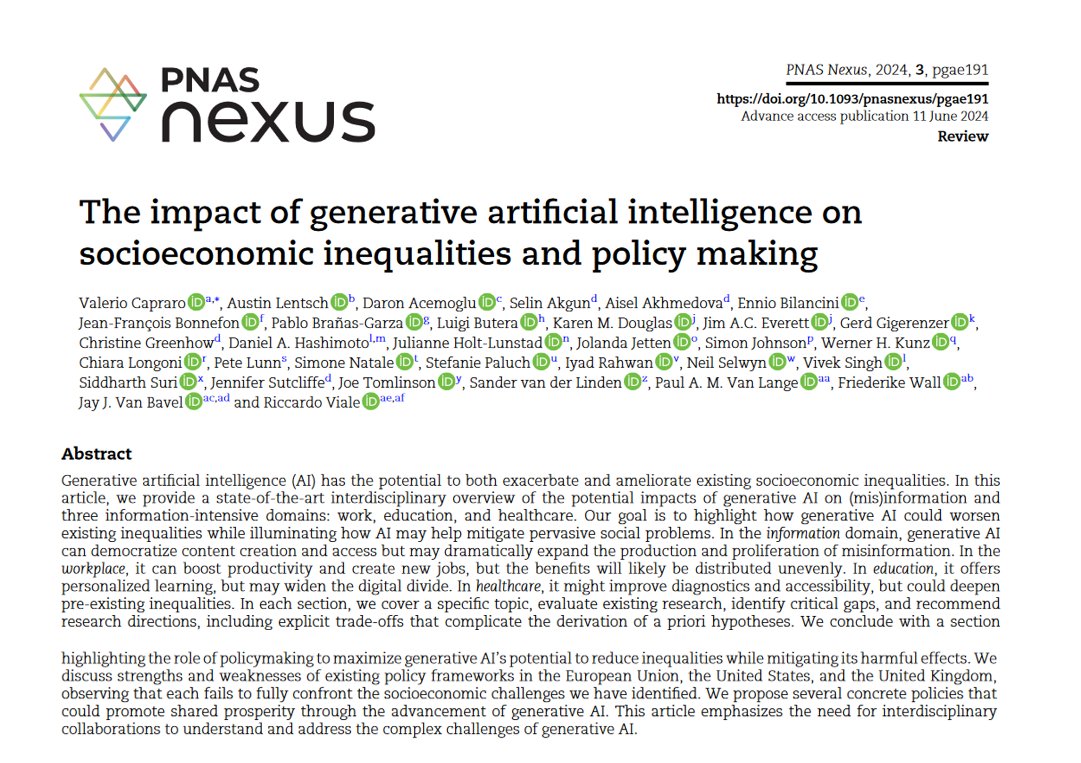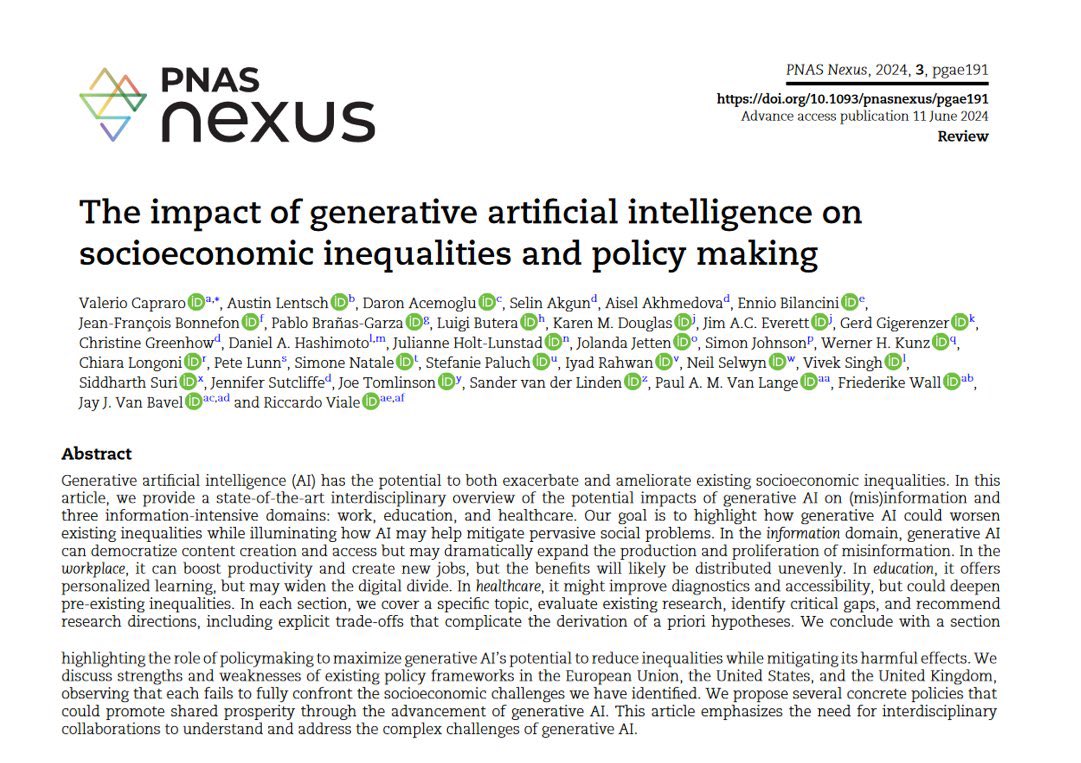
Friederike Wall
@friederikewall
Full Professor @alpenadriauni; Department of Management Control and Strategic Management;
researchgate: researchgate.net/profile/Friede…
ID: 821438452382232576
17-01-2017 19:26:03
101 Tweet
96 Takipçi
132 Takip Edilen



Parallel session "Agent-based models and social interactions" at the AMASES 2021 #online meeting, organized with Stephan Leitner and Friederike Wall (AAU Klagenfurt). See the CFP at drive.google.com/file/d/1iGUSEr… Deadline for 2000 words abstract: 31 August #ABM #RT ExSIDE @EPOC49441760

Controlling in wachsenden Unternehmen -- Martin Hiebl und Peter Bluhm haben im begleitenden Podcast zur aktuellen Zeitschrift CONTROLLING ab Minute 27:20 über unseren (gem. mit Friederike Wall) Beitrag gesprochen Herzlichen Dank! atvisio.de/blog/zeitschri…

The #Italy Association for Mathematics applied to Economics ad Social Sciences will be held online from Sept 13 to 17. See website for schedule and program of many parallel sessions Ca' Foscari Economia Stephan Leitner Friederike Wall Roberto Natalini


Second Zero-intelligence (ZI) and Minimal-intelligence (MI) Conference: (free) registration available at som.yale.edu/event/2021/10/… See the program at ziconference.net #ABM #Finance Ca' Foscari Economia Associazione A.M.A.S.E.S. Stephan Leitner

Annual Conference 2022 AMASES in #Palermo Friederike Wall Stephan Leitner Ca' Foscari Economia 22-24 September 2022 @EPOC49441760

Special session at AMASES Annual Meeting in #Palermo "Agent-based models and social interactions" by Leitner, S.; Pellizzari, P.; Wall, F. drive.google.com/file/d/14P__6m… #ABM #ComputationalEconomics Paolo Pellizzari Stephan Leitner Friederike Wall


Hey #EconTwitter 👋 if you are working with #agentbasedmodels in #management #organization #economics please consider submitting an abstract or full paper to the Special Track that I am coorganizing alongside Stephan Leitner and Friederike Wall at #SSC2023 Deadline 28 April 👇

🚨Our #special_issue on #socialidentity& #ABM in JASSS jasss.org/26/2/contents.… ✅OrganizationalControl by Friederike Wall ✅#Axelrod model by Alejandro Dinkelberg et al. ✅our #review on #social_identity in #ABM 🙏all contributors & other editors Until next block & editorial

Special session on "Agent-based models and social interactions" at the AMASES Annual Meeting #ABM September 20-22, 2023 Milano, Italy Ca' Foscari Economia @EPOC49441760 Associazione A.M.A.S.E.S. Submit within June 11th (but preferably before May 14th) Friederike Wall Stephan Leitner Luca Gerotto
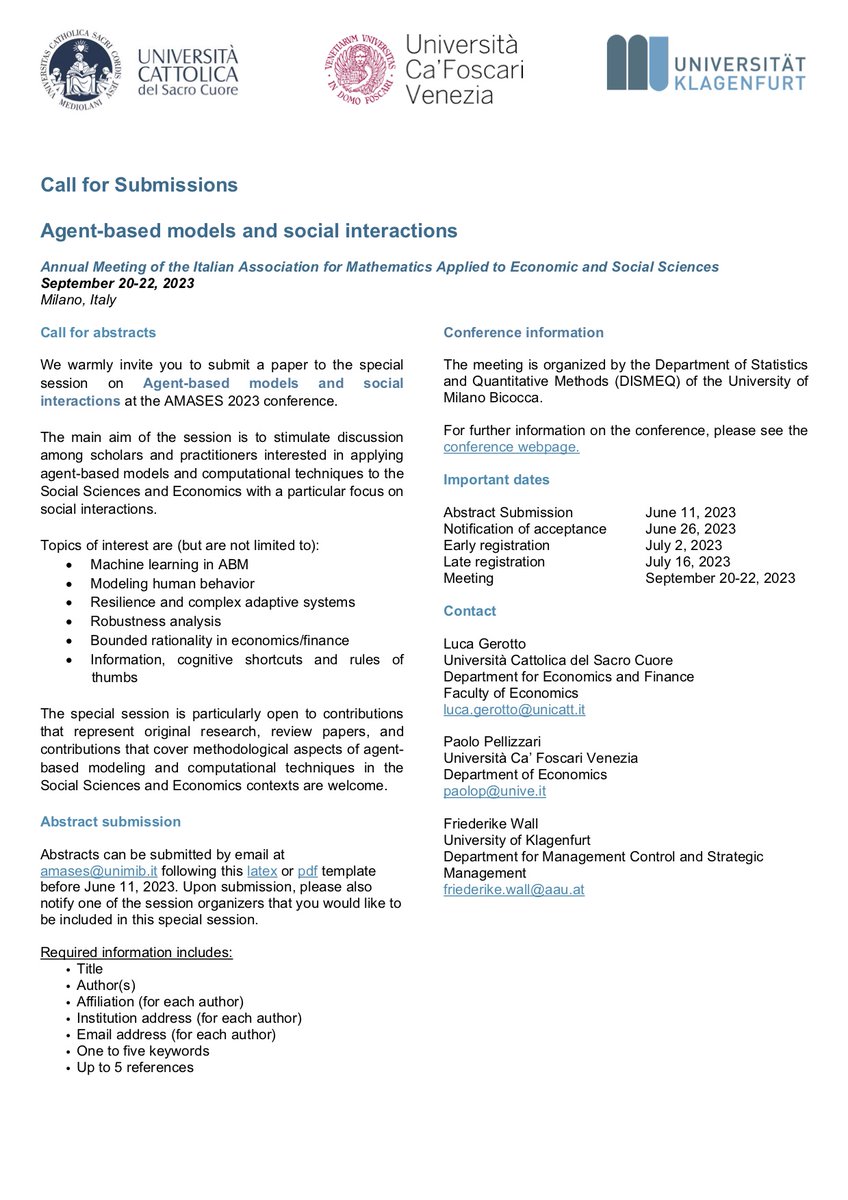

ABMSI Agent-based Models and Social Interactions at #AMASES chaired be Friederike Wall. Now Reinhard Neck presenting “An evolutionary approach to obtain a Nash equilibrium in a coalition game” #ABM #optimization. Advanced numerical solutions in a core-periphery stylized EU.
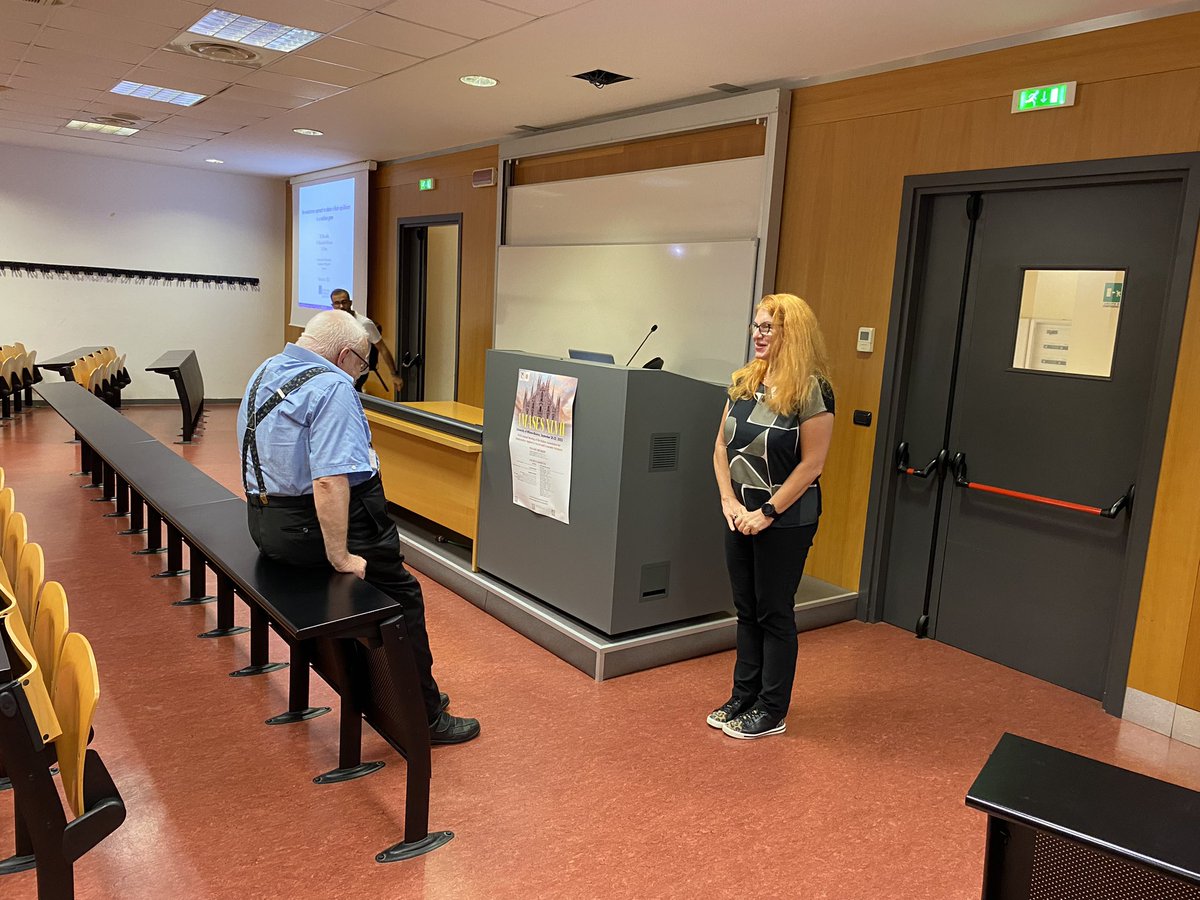


🔥Now in press at PNAS Nexus 🔥 We provide a state-of-the-art, interdisciplinary overview of generative AI’s potential impacts on (mis)information and three information-intensive domains: work, education, and healthcare. Our goal is to highlight how generative AI could worsen
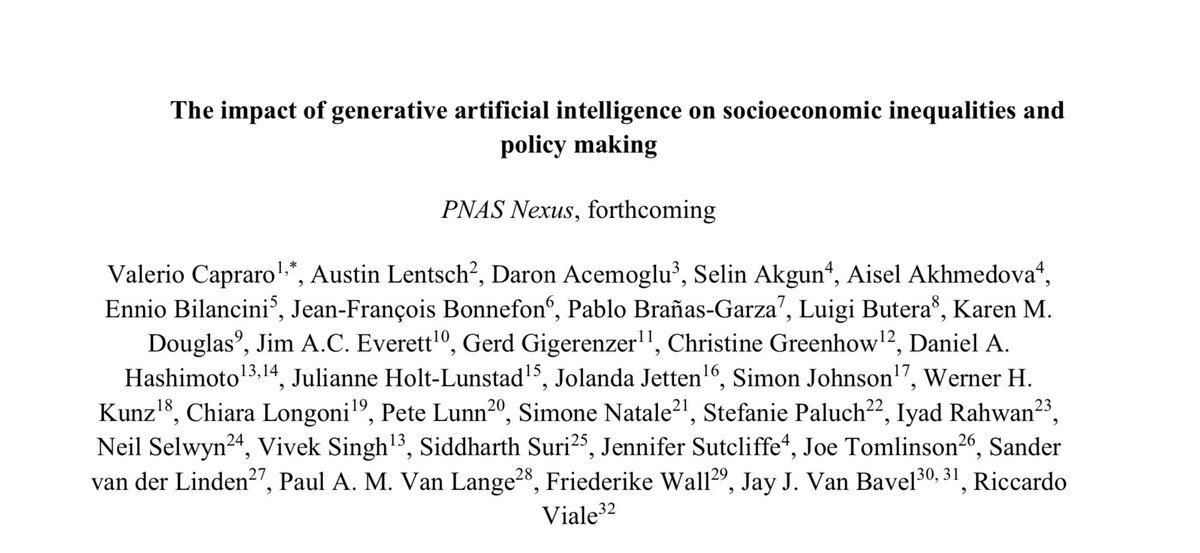


New paper: Patrick Reinwald, Stephan Leitner (Stephan Leitner) and Friederike Wall (Friederike Wall) explore the robustness of the hidden-action model under limited information access. degruyter.com/document/doi/1…
